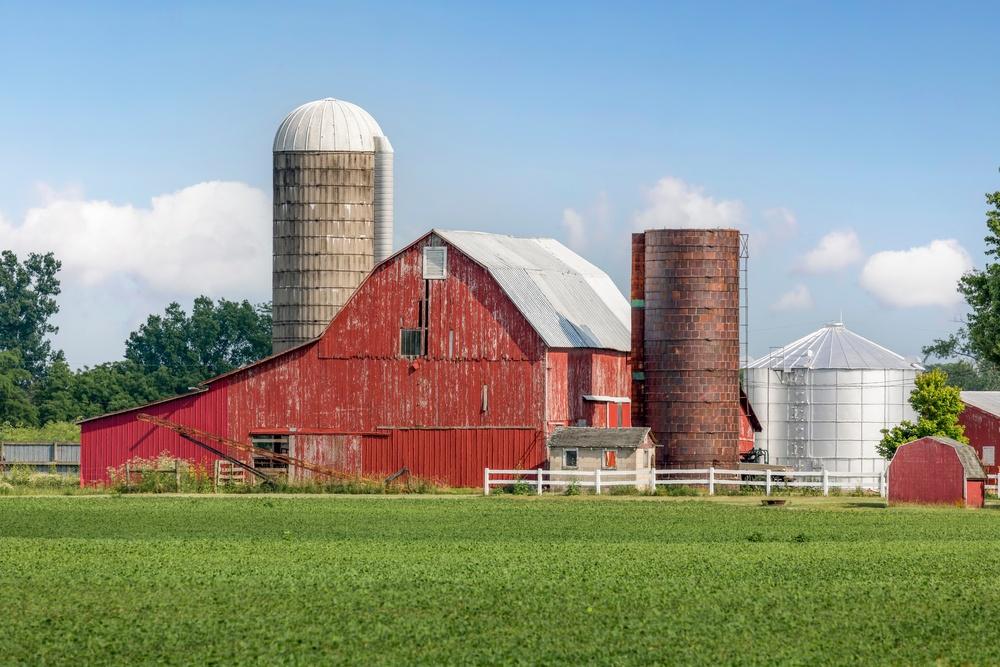
Are you tired of having issues with your heavy-duty farming equipment because your power supply isn’t strong enough? A quality phase converter can provide the reliable power you need to maintain efficient daily operations. This guide will help you understand the purpose of phase converters and the benefits of using them to power your farm equipment.
|
Table of Contents |
Common Types of Farm Equipment
Here are the top 13 type of farm equipment that may benefit significantly from the reliable three-phase power that phase converters provide.
- Augers
- Blowers
- Grain mixers
- Hullers
- Balers
- Grinders
- Heaters
- Irrigation pumps
- Grain bucket elevators
- Submersible pumps
- Grain conveyor belts
- Grain dryers
- Center pivot irrigation systems
Powering Farming Equipment with a Phase Converter
Since most farms are located in rural areas, they often don’t have easy access to an affordable, reliable power supply. Considering reliable three-phase electricity is necessary to meet the electrical demands of the farming equipment used daily on your property.
By converting single-phase power into three-phase power, phase converters produce a steady supply of power for various equipment types. Besides providing the reliable electricity needed to power your farming equipment, phase converters offer both financial and temporal savings in a few different ways. Check them out below:
- Affordable three-phase power cuts down on monthly operating costs, leaving you with more funds to allocate toward other essential projects and tasks.
- If a piece of equipment breaks down, you can't get important work done until it’s fixed—costing time and money. Phase converters provide the three-phase power you need to avoid costly equipment breakdowns.
- Installing a phase converter is a one-time purchase that helps you avoid paying your utility provider to install on-site three-phase power.

Tips & Insights: What Are the Differences Between Rotary Phase Converters and Utility Three-Phase Power?
How to Choose the Right Phase Converter for Your Farm
After determining whether you need a phase converter to operate your farm equipment, the next step is to choose the right type of phase converter for your intended applications. Here are some questions to help guide you through the process:
- How much three-phase electricity do you need to power your farming equipment? Different pieces of equipment require different amounts of three-phase electricity, with size and frequency of use being two primary factors.
- How many pieces of equipment will the phase converter need to power, and what are their sizes?
- How often will you use the equipment, and for what lengths of time during each use?
- Will you use the phase converter indoors, outdoors, or both? If you plan to use the phase converter outdoors, be sure to select a weatherproof model that will stay protected against water damage and debris.

5 Reasons to Invest in a Phase Converter for Your Farming Equipment
In addition to providing a more affordable and reliable power supply, phase converters offer several benefits. Here are the top five reasons you should invest in a quality phase converter for your farm.
- On-Demand Power Production: Phase converters offer all the three-phase power you need whenever you need it.
- Cost-Effective Power Solution: Phase converters provide reliable three-phase power at a lower cost than what utility companies offer.
- Efficient Power Supply: Since phase converters have a balanced voltage, they produce the steady stream of power that heavy-duty farming equipment requires. What is even better is that they waste little to no power in the process.
- Versatility: While a three-phase power supply can produce single-phase power, a single-phase power supply can’t produce three-phase power. If you need three-phase power, you need a three-phase power supply—such as a phase converter—to get the job done.
- Self-Starting System: While single-phase systems require an external power source to start, three-phase systems start on their own.
Tips & Insights: What Are the Characteristics of IP66 Ratings?
The Differences Between Single-Phase & Three-Phase Power
AC (alternating current) power comes in two forms: single-phase and three-phase. The “phase” measures the distribution of a load. For example, three-phase power can accommodate larger loads than single-phase power can. Take a look below at the main differences between these power types.
Three-Phase Power
Three-phase power, which is most commonly used for commercial and industrial purposes, offers maximum efficiency by traveling through three wires rather than just two. This means the wires can transmit more power at a faster rate.
Three-phase power is more reliable than single-phase power. This is because three-phase power experiences no voltage dips, resulting in a more consistent power supply.
Single-Phase Power
Single-phase power, which is used primarily for residential applications, is less efficient than three-phase power. This is because it travels through two wires rather than three, meaning less power moves through them at a slower rate.
Single-phase power is less reliable than three-phase power. It experiences occasional voltage dips which interrupt the flow of electricity, resulting in a less consistent power supply.

Buy a Rotary Phase Converter With Confidence
When you need reliable three-phase power for all your heavy-duty farming applications, we have a large selection of rotary phase converters to meet your requirements. We guarantee you won’t find a higher quality, better-priced phase converter on the market. Browse our collection today to find the right phase converter for your electrical needs. Contact our staff by phone at (866) 418-9060 to receive assistance comparing the specifications of different phase converters.
